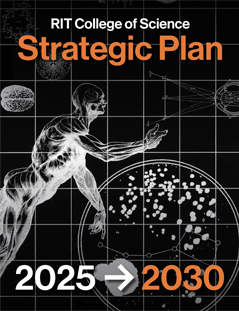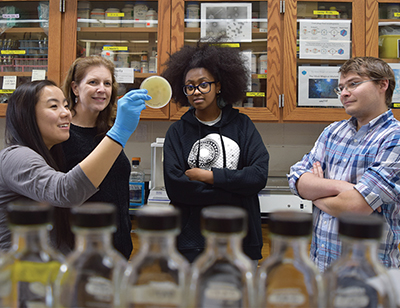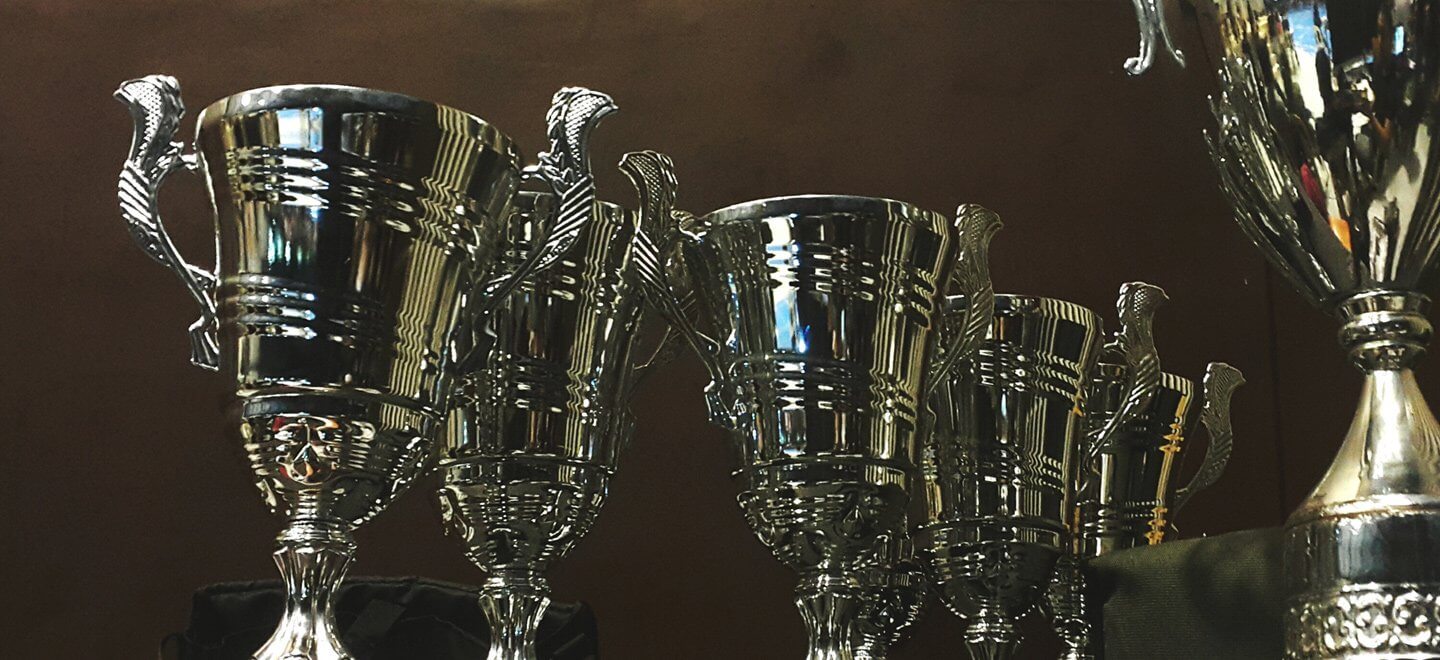About
Preparing the next generation of innovative
scientists and mathematicians.
Our Mission
The College of Science prepares graduates for careers in the physical, life, and mathematical sciences and provides mathematical and scientific foundations for all RIT students through academic programs and impactful, innovative research that expand scientific knowledge and develop new technologies to advance the sciences and their application to society and our environment. We are committed to fostering access and belonging across education, research, and the broader scientific community.
Our Vision
The College of Science will be recognized as a national model for its significant contributions to improving our communities and our world through science. We will prepare world leaders who expand the frontiers of science and mathematics and apply that knowledge to address societal and global challenges. Our community will be one where all individuals feel valued, supported, and empowered to thrive.

Learn more about our guiding principles and goals
View objectives and student learning outcomes by program
About RIT College of Science
100%
Students Complete Experiential Learning
All College of Science students are required to complete experiential learning such as a co-op, REU, paid research, or research for credit before graduation.
9.9K
Alumni Worldwide
Our alumni are valued resources who help us keep our programs relevant. As mentors, they help us prepare the next generation of scientists and mathematicians.
15+
Science and Math Clubs
The College of Science is home to over 15 student-led clubs and organizations out of the 300+ clubs on campus. Our clubs are dedicated to science and mathematics including Pre-Vet Club, Society of Physics Students, and PiRIT (our math club).
1st
Imaging Science Program
The College of Science is home to the first imaging science program in the U.S. and currently the only formal program in the country.
1st
BS Degree in Biotechnology
RIT was the first university in the nation to offer a Bachelor of Science degree in biotechnology in 1983.
20
Accelerated BS/MS Degrees
The College of Science offers 20 pathways for combined accelerated Bachelor’s/Master’s degrees allowing students to complete two degrees in as little as five years.
5
Ph.D. Programs
The College of Science Ph.D. programs include: astrophysical sciences and technology, color science, imaging science, and mathematical modeling.
1st
Director of Access and Belonging
As the first RIT college to hire a Director of Access and Belonging, the College of Science is committed to promoting a community grounded in open dialogue, collaboration, and authentic allyship.







